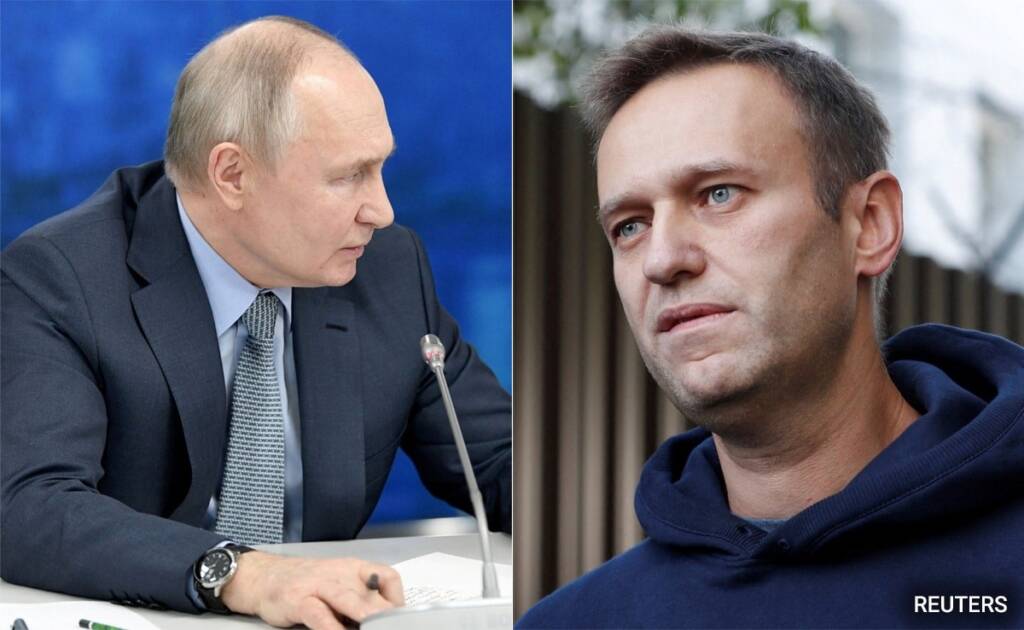On 20 August 2021, Alexei Navalny, while on a flight from Siberia to Moscow, became severely ill. Russian medical personnel who examined him did not find any traces of poison, suggesting instead that a metabolic imbalance might have been caused by a combination of his medication for diabetes and depression with excessive alcohol. Despite this, Navalny’s relatives and allies demanded he receive medical care abroad. Subsequently, Navalny was flown to Berlin and admitted to a military hospital, where German officials reported detecting Novichok, a lethal nerve agent, in his system.
German authorities, however, have never publicly shared any verifiable evidence to support the poisoning claim. Russia, in particular, was denied access to the data. Moreover, Western nations criticized Russia for not launching a criminal investigation into the incident.
Join us on Telegram: https://t.me/tfiglobal
The assertion of Novichok poisoning raised questions, especially since no other individuals on the same flight or in proximity to Navalny at the hotel showed symptoms of exposure to the toxin. This lack of secondary poisoning cases was not explained by the Berlin authorities, and that led to speculation about the credibility of the evidence and accusations of evidence fabrication.
For five months following his illness, Alexei Navalny was in Berlin under the German government’s protection, where he became a central figure in international news. This period saw him being depicted as a victim of what was described as the oppressive regime of Vladimir Putin. During his recovery, Navalny used media resources to contact a member of the Russian secret service. This individual conveniently admitted to being part of a plot to kill Navalny, a plan Navalny claimed was ordered by high-level Kremlin officials.
The Western media and political figures from various countries, including the United States, the United Kingdom, Germany, France, the Netherlands, Scandinavian countries, and Australia, quickly seized upon these accusations, further disseminating them. This situation was a pure political manipulation, aimed at undermining the Russian government and fostering negative sentiments towards Russia, and a part of a broader agenda to instigate regime change in Russia and escalate tensions.
Alexei Navalny received significant international attention, including a Nobel Prize nomination and comparisons to Nelson Mandela, with notable publications like The Guardian praising his courage. Concurrently, political developments, such as the European Parliament’s call on 6 January, coinciding with Joe Biden’s inauguration, to halt the Nord Stream 2 gas pipeline project from Russia to Germany, underscored geopolitical tensions.
This move was aimed at opening European markets to pricier U.S. gas exports.
Read More: Why Latin America loves Putin
Upon his return to Russia from Berlin on 17 January, Navalny was detained and later sentenced to two-and-a-half years in prison. Russian authorities cited his violation of parole terms as the legal basis for his imprisonment. Navalny had previously been convicted of fraud and embezzlement in 2014 related to the Kirovles timber company, receiving a suspended sentence under the condition he report to prison authorities—a condition he failed to meet repeatedly.
Navalny’s Anti-Corruption Foundation (FBK) was accused of being closely linked with Western intelligence networks. The Russian intelligence services publicized video evidence from 2013, showing FBK’s executive director, Vladimir Ashurkov, meeting with an MI6 agent, James William Thomas, in Moscow. During this meeting, Ashurkov was seen requesting $10 to $20 million to significantly alter the political situation in Russia.
In 2018, Ashurkov was mentioned in documents related to the Integrity Initiative, a covert influence operation by the UK’s Foreign and Commonwealth Office, disguised as the Institute for Statecraft think tank. This operation, run by British intelligence officers, aimed to escalate tensions between the West and Russia, with Ashurkov listed among anti-Russian influencers in London. The initiative sought to undermine Russia and hinder any efforts towards normalizing West-Russia relations.
Furthermore, major news organizations like the BBC and Reuters, along with other media entities such as Bellingcat, were involved in operations aimed at destabilizing Russia by promoting narratives against Putin. These operations were funded by the British government, specifically through the Counter Disinformation and Media Development department within the Foreign and Commonwealth Office, and involved covert projects with a network known as ‘The Consortium’. Bellingcat, which claimed to engage in open-source journalism, received funding from sources including the National Endowment for Democracy, a U.S. government agency.
Read More: Tucker’s Interview of Putin: How Putin Justified his actions in Ukraine with historical context
Navalny was often portrayed by Western media as a significant opposition figure in Russia, championing the fight against President Putin’s governance. However, this portrayal was laughable as his influence was practically non-existent. The extensive media coverage and support Navalny received from the West contrasted sharply with the situation of individuals like Julian Assange.
Assange faces harsh treatment for his role in disclosing the misdemeanors of Western powers, notably the actions of Anglo-American forces during the protracted conflict in Iraq, a war that resulted in nearly 2 million casualties.
Navalny was now practically a burden for the forces that ran him. Putin had won the Ukraine War and the World was turning increasingly anti-West. Navalny was of no use. But Navalny’s death was definitely a good move for the forces that be.
